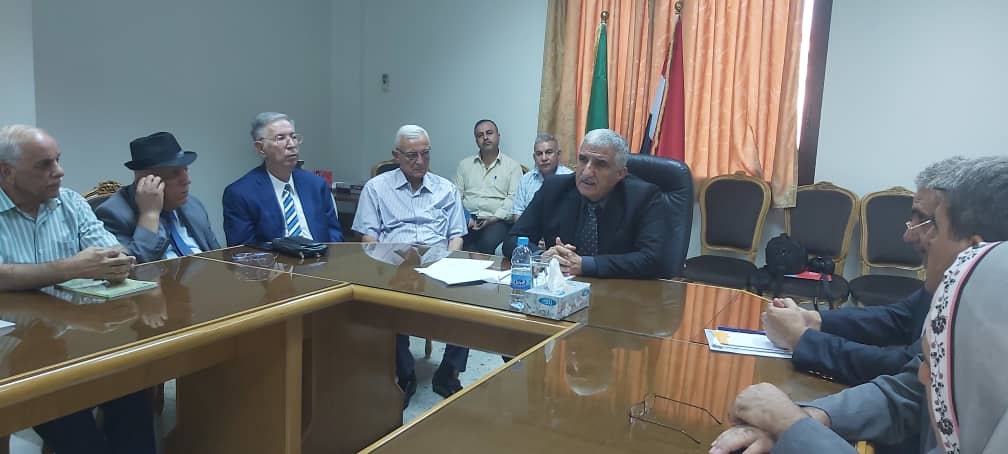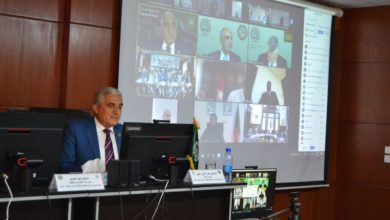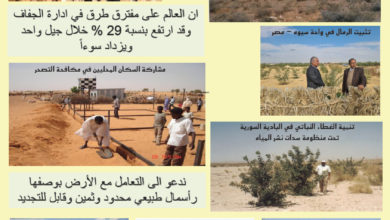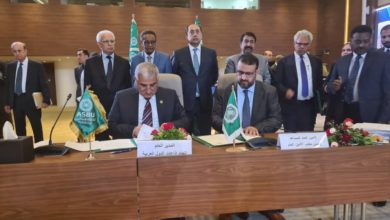A training course in ACSAD on “the Composition of Fodder Mixes.”
At the request of the Ministry of Agriculture and Agrarian Reform and the General Foundation for fodder; The Arab Center for the Studies of Arid Zones and Dryland “ACSAD” held at its headquarters today a training course entitled “the composition of fodder mixes for the small ruminants, poultry, and improving the agricultural residue” within the Arab Center Organization’s program to raise the technical cadres capabilities in the agriculture sector in Syria.
His Excellency, Dr. Nasr Edin Obaid, the Director-General of the Arab Center Organization for the Studies of Arid Zones and Dryland “ACSAD,” said in a speech during the course opening that this course came within the course series conducted by the Arab Center at the request of the General Foundation of the fodder for the benefit of the institution’s cadres and the Ministry of Agriculture. He asserted that the Arab Center improved and developed fodder resources through many studies and research, some of which hay treatment with Urea, the introduction of olive and citrus tree pruning residue in fodder mixes, and benefiting from sugar beet residues such as bagasse, molasses, tomato bagasse, and others. Besides finding some fodder alternatives like cactus pear and transferring these techniques to the breeders to adopt them.
He explained that the Arab Center had realized the importance of developing fodder resources, where the deficit in the feed budget in Arab countries is estimated at 80 million tons of dry matter, of which about 60% are imported, which is one of the most important obstacles to developing livestock in Arab countries.
He also confirmed that the Arab Center was bridging the fodder gap by manufacturing the units to produce integrated fodder, improving the agricultural residue’s nutritional value, and distributing them to some Arab countries. In addition to raising the technical capacities by implementing training courses in the field of forage and animal nutrition, preparing the forage budget of Arab countries that they depend on to develop their policies for developing livestock needs from fodder.
The course lasts for five days, with a number of researchers and expert specialists working in the Centre will lecture. It is interspersed with a field day at the Izraa station, one of the important research stations of ACSAD’s, where trainees are briefed on the reality of work at the station and the significant achievements made recently under the close guidance and follow-up of ACSAD’s Director-General.




